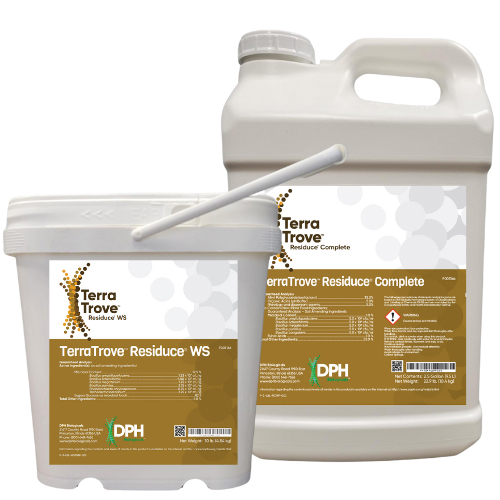Mycogen Seeds Offers Novel Product to Battle Pythium, Other Pathogens
After a season plagued by seedling diseases caused by cool, wet soils at planting, farmers have a new option to protect seed investments. Mycogen Seeds is offering its new REVONTEK seed treatment in its Mycogen brand corn and silage hybrids for 2018 planting.
“Seedling diseases have been especially challenging this year,” says Andrew Hoffman, Mycogen Seeds agronomy marketing manager. “The effects of Pythium and Rhizoctonia are still evident in farmers’ fields with less-than-ideal, irregular stands.”
With REVONTEK, farmers now have a solution to push past the window of early season diseases like Pythium and Rhizoctonia.
The seedling disease battle
As farmers manage more and more acres, it is increasingly difficult to hit a specific planting window for all fields. It’s often impossible for farmers to cover all their acres during ideal planting conditions.
“We advise growers to keep an eye on the weather,” says Alison Robertson, Ph.D., Iowa State University Extension pathologist. “If a cold front is predicted, they may want to hold off on planting.”
Robertson says farmers don’t often like this advice, but it’s certainly a key factor in avoiding seedling diseases. This year, farmers across the Corn Belt faced Pythium issues. This pathogen attacks seedlings and prevents corn from emerging, kills the new plants shortly following emergence or reduces seedling vigor.
“We’ve learned that corn is most susceptible to seedling disease if cold stress occurs two to four days after planting,” Robertson explains. “We found that you can plant into warm soils and seeds will absorb water, but if you get cold, wet soils 48 to 96 hours later, the seed stops growing.”
Once the seed stops growing, it begins to leak carbohydrates and amino acids, allowing nearby disease pathogens such as Pythium to invade. Robertson is conducting a three-year study in cooperation with farmers to determine which Pythium species are the most troublesome. She specifically looks at how residue and cover crops affect Pythium.
“Depending on the crop and soil temperature, we are going to see different species of Pythium,” Robertson says. “If we can understand how these species affect corn seedlings, we can come up with tailored management practices.”
Aside from waiting until Mother Nature cooperates, Robertson tells growers to consider using row cleaners to move corn and crop residue aside, crop rotation and an effective seed treatment.
Protect seed investments
Seed treatments help ward off early season disease and insects. REVONTEK seed treatment is powered by six fungicidal active ingredients to protect against a wide range of seedling pathogens including Fusarium, Rhizoctonia, Pythium, and Phytophthora. REVONTEK also contains a unique biological protein for enhanced root growth as well as a higher concentration of systemic insecticide for longer early season residual control of a broad range of damaging insects.
“REVONTEK seed treatment has a biologic protein which enhances root growth as well as a strong insecticide component to protect against early season pests,” Hoffman says. “As farmers know, strong, healthy roots and early-season protection can help push a crop through the growing season and into harvest.”
REVONTEK will be offered to farmers of Mycogen brand corn as part of the company’s standard corn seed treatment. The seed treatment comes with a polymer coating, which provides a protective layer for an even, durable coating.
For more information on REVONTEK seed treatment, contact your local Mycogen Seeds sales representative, commercial agronomist or dealer.






